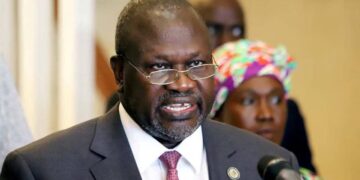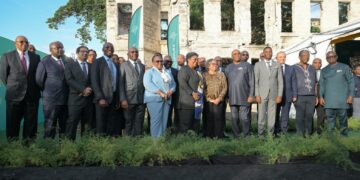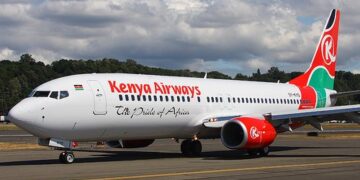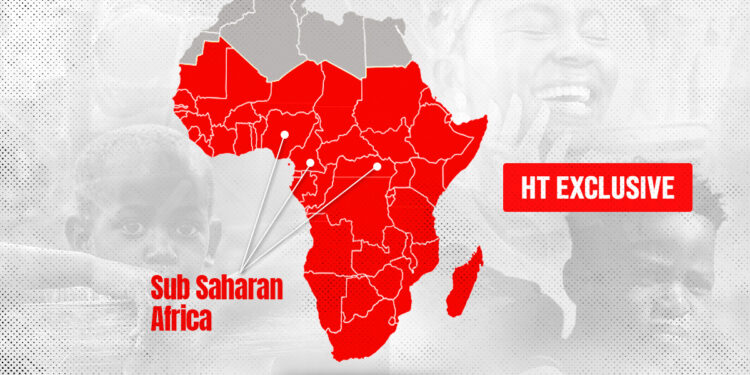By Elie Mutangana, Kigali
The 2023 report by Economist Intelligence Unit Democracy Index indicated the prevalence of geopolitical confrontations, weak governance and poverty in Africa as the factors that make the continent lag behind in democracy index.
Prolonged bouts of conflicts and broader political instability have stifled Africa’s democratic prospects, as well as the security of its citizens for decades, pushing millions of African to migrate to the western world for greener pastures.
The report provides a snapshot of the state of democracy in 165 independent states and two territories. It covers almost the entire population of the world and the vast majority of the world’s states.
The Democracy Index is based on five categories including; electoral process and pluralism, functioning of government, political participation, political culture, and civil liberties.
Based on its scores using the range of indicators, within these categories, each country is classified as one of four types of regime which are; “full democracy”, “flawed democracy”, “hybrid regime” or “authoritarian regime”.
Meanwhile, in each category, Africa witnessed deterioration that impended the improvements in scores. For instance, the report says Africa testified substantial decline in the ‘electoral process and pluralism’ category, driven by the cascade of successful and attempted coups in 2023.
Currently, sub-Saharan Africa continues to have only one “full democracy”, Mauritius according to the report.
READ ALSO: Ex-International To Coach Nigeria’s Super Eagles Against Mali, Ghana, Osimhen Out
The same as in the 2022 index, the region now has six nations with “flawed democracy”. The nations classified as “hybrid regimes”- the state of having mixed democracy and authoritarian regimes, increased to 15 up from 14 in 2022, while “authoritarian regimes” decreased to 22 from 23 in 2023.
Nonetheless, ‘authoritarian regime’ remains the most prevalent form of government in Africa.
Commendably, the slight increase in “hybrid regimes” happened because Angola improved its scores in ‘political participation’ category, improving from “Authoritarian regime” to “hybrid regime”.
Other big improvements in scores were noted in Benin, Tanzania and Rwanda, though their categories remained unchanged.
Sub-regionally, seven countries from West Africa including Nigeria remained “hybrid”, six ranked as “Authoritarian” while two countries; Ghana and Cape Verde ranked the “flawed democracy” countries.
In East Africa, the region has neither a flawed democracy nor full democracy. Countries such as Rwanda, Burundi and DRC are classified as authoritarian, while Tanzania, Kenya and Uganda are classified as hybrid regimes.
Generally, the aggregate index scores for Sub-Saharan Africa declined in 2023, falling from 4.14 in 2022 to a historical low of 4.04 in 2023.
Military Coups, Growing Electoral Restrictions In Africa
The report highlights that 18 of the region’s 44 countries registered a deterioration in their scores, with sharp declines recorded in Niger, Gabon, Sierra Leone, Mali, and Madagascar.
For instance, Gabon and Niger recorded the biggest declines in the index of any in the African continent, dropping by 1.36 and 1.22 points respectively, following the military coups in the countries that later stretched across Sahel region.
Democratic regression in the region in large part reflects the increase in the number of military regimes across the continent.
The spread of military rule has severely weakened Sub-Saharan Africa’s scoring in the ‘electoral process and pluralism’ category which declined further in 2023, from 3.63 in 2022 to 3.44 in 2023.
Military rule became more entrenched in Mali, Burkina Faso, Chad and Guinea in 2023.
The coups in West and Central Africa have also led to a deterioration in Sub-Saharan Africa’s scores for ‘civil liberties and political culture’ category, thus impending the space for independent media and critics of the regimes.
“In Burkina Faso, several Burkinabe civil society figures and journalists who raised uncomfortable questions about the ruling junta received death threats and were subjected to other forms of intimidation,” read a part of the index.
According to the recent Afrobarometer data, in only eight years, 21 coups have been detected across Africa.
Over two decades – different from before – it has amazingly showed that the extent of citizens opposing to military takeovers has dramatically decreased by 10 percent.
Only three countries (Uganda, Liberia and Sudan) in 36 surveyed countries recorded growing resistance to military rule, while other citizens embrace willingness to endorse military revolutionists, just in case the elected leaders abuse their power.
‘Leaders Who Cling To Power And Abuse It’
Pan Africanists show that citizen’s satisfaction with the way democracy is working has declined across the continent, thus undermining their confidence in democratic governance.
The 2023 Afro barometer report cited that the continent’s long-ruling autocratic incumbents appear at times to have been emboldened in wielding anti-democratic governance. The contradictory developments by some incumbents have contributed to dire warnings from experts that democracy has lost ground in Africa.
While data shows that Africans commitment to democracy remains strong, some leaders have failed to meet these popular democratic aspirations, increasing attraction to military intervention.
For instance, Afrobarometer data from 36 countries surveyed in 2021/2022 showed that two-thirds of Africans prefer democracy over any other form of government. Additionally, 80 % of Africans reject one-man rule, while 78% and 67% reject one-party rule and military rule respectively.
Only 38% of Africans express satisfaction with the way democracy functions in their countries.
Call To Action
During the ‘Africa Drive for Democracy’ Conference held in Tanzania’s Arusha, themed “Securing Africa’s democratic future through learning and engaging”, African leaders stressed the need for practical and actionable solutions to strengthen democracy.
“Unless and until African governments address the deficiencies in democratic governance and deliver essential public services to their people, democracy will remain an aspiration never to be meaningfully realized.,” said Tanzanian President Samia Suluhu Hassan in the conference.
The leaders challenged Africans to confront the challenges that threaten restoration of democracy including poor leadership, ineffective citizenship, corruption, poverty, political polarization and instability as well as others social demeanor.




































